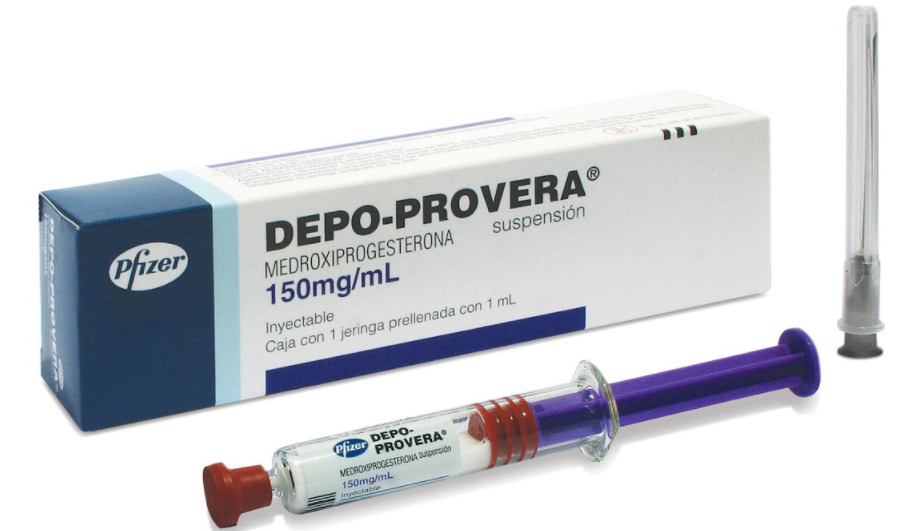What Happens If Depo-Provera Is Injected Wrongly?

Injections, also known as shots, deliver liquid medications, fluids, or nutrients directly into a person’s body. A healthcare professional can use injections to administer vaccines and other types of medications into a person’s vein, muscle, skin, or bone.
Several different types of injections exist, depending on the purpose of the medication or substance in the shot. A healthcare professional can inject many medications into many parts of the body. They will decide the most appropriate route of access depending on the situation.
The four most frequently used types of injection are:
Intravenous (IV) injections. An IV injection is the fastest way to inject a medication and involves using a syringe to inject a medication directly into a vein. When people talk about receiving medication via IV, however, they are usually talking about an IV infusion or drip, which involves using a pump or gravity to infuse the medication into a vein, rather than a syringe. IV infusions allow a set amount of medication to be administered in a controlled manner over a period of time.
Intramuscular (IM) injections. IM injections are given deep into a muscle where the medication is then absorbed quickly by surrounding blood vessels.
Subcutaneous (SC) injections. SC injections are injected into the innermost layer of the skin called the subcutis or hypodermis, which is made up of a network of fat and collagen cells. SC injections are also known as ‘subcut’ or ‘SQ’ injections. These injections work more slowly than an IV or IM injection because the area does not have such a rich blood supply.
Intradermal (ID) injections. ID injections are given directly into the middle layer of the skin called the dermis. This type of injection is absorbed more slowly again than IV, IM or SC injections.
What is Depo Provera?
Depo Provera is a contraceptive injection containing progestogen. Some people call it “the injection”, “the jab” or “DP”. Progestogen is similar to one of the hormones produced naturally in the ovaries. The injection is given every 13 weeks.
Depo Provera prevents pregnancy by stopping the ovaries from releasing an egg each month. There are also changes to the lining of the uterus (endometrium). Typically, Depo Provera is 97% effective. This means three out of 100 people using Depo Provera will get pregnant each year. If you have your injections on time (every 13 weeks) it can be more than 99% effective.
How soon does Depo-Provera work?
You’re immediately protected after receiving the first Depo-Provera® shot if you get it during your menstrual period. If it’s given to you at another time during your cycle, you may need to wait a week to 10 days before having intercourse without a condom to prevent pregnancy.
How Depo-Provera is given?
Depo-Provera is injected into a muscle (Intramuscularly) or under the skin (Subcutaneously). A healthcare provider will give you this injection once every 3 months (12 to 14 weeks).
The recommended dose is 150 mg of Depo-Provera CI every 3 months (13 weeks) administered by deep intramuscular (IM) injection using a strict aseptic technique in the gluteal or deltoid muscle, rotating the sites with every injection.
How long the depo shot stays in your system or lasts after you stop using it is a little bit different for everyone. It can take months for it to wear off. The length of time you use the shot for has no effect on how long the hormones in your shot take to leave your system.
If you get your first birth control shot within the first 7 days after the start of your period, you’re protected from pregnancy right away. If not, it takes a full week for the shot to become effective. It’s a good idea to wait to have sex or use a backup method like condoms for that first week. If you get your following shots on time (every 12-13 weeks), they’ll start working right away.
If you get your shot more than 15 weeks after getting your last shot, wait to have sex or use a backup method like condoms for the first week to help prevent pregnancy. Condoms also help prevent the spread of STDs.

What happens if Depo-Provera is injected wrongly?
Studies have shown that when Depo-Provera is injected wrongly, it can fail to provide contraception, resulting in unwanted pregnancy and drug interaction in rare cases. When Depo-Provera is injected wrongly, the amount of the medication needed to prevent ovulation (the release of an egg from an ovary) is lacking, as a result, the wrongly injected amount is capable of causing changes in your cervical mucus and uterine lining, which makes it harder for sperm to reach the uterus and harder for a fertilized egg to attach to the uterus leaving the window open for pregnancy to occur.
In addition, wrongly administering Depo-Provera or concurrently taking medications like Aminoglutethimide (an inhibitor of adrenocorticosteroid synthesis) may significantly depress the bioavailability of Depo-Provera.





